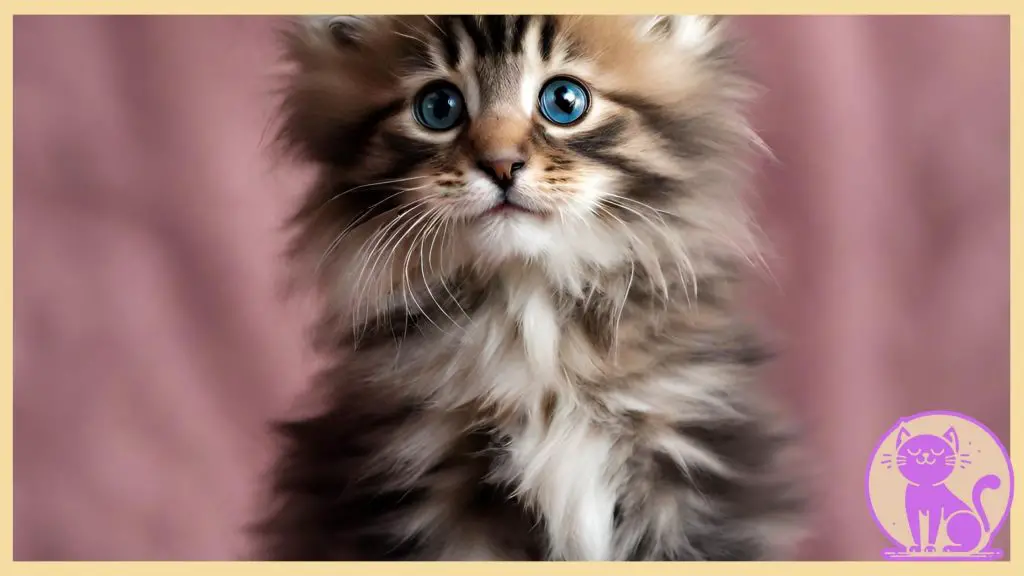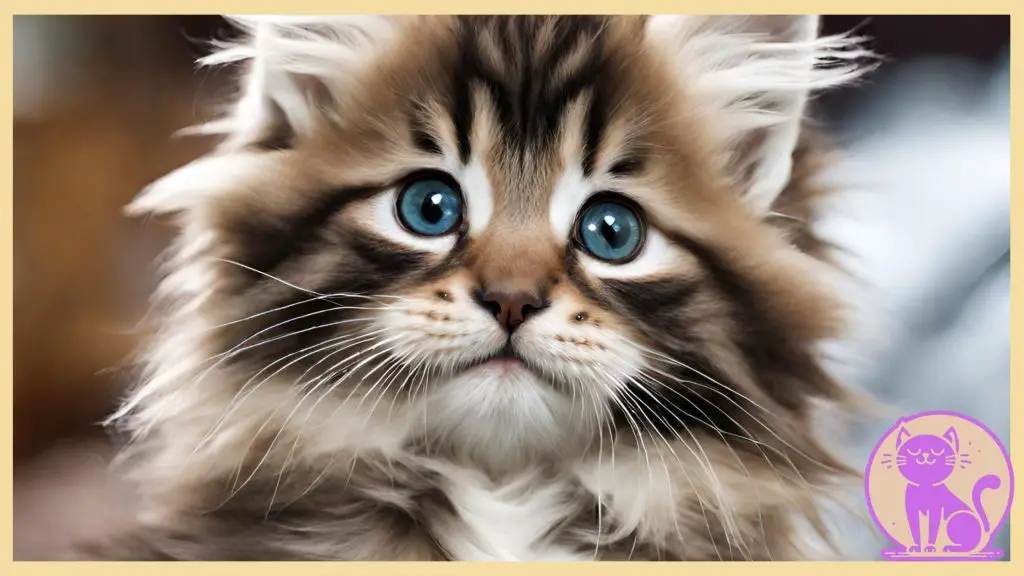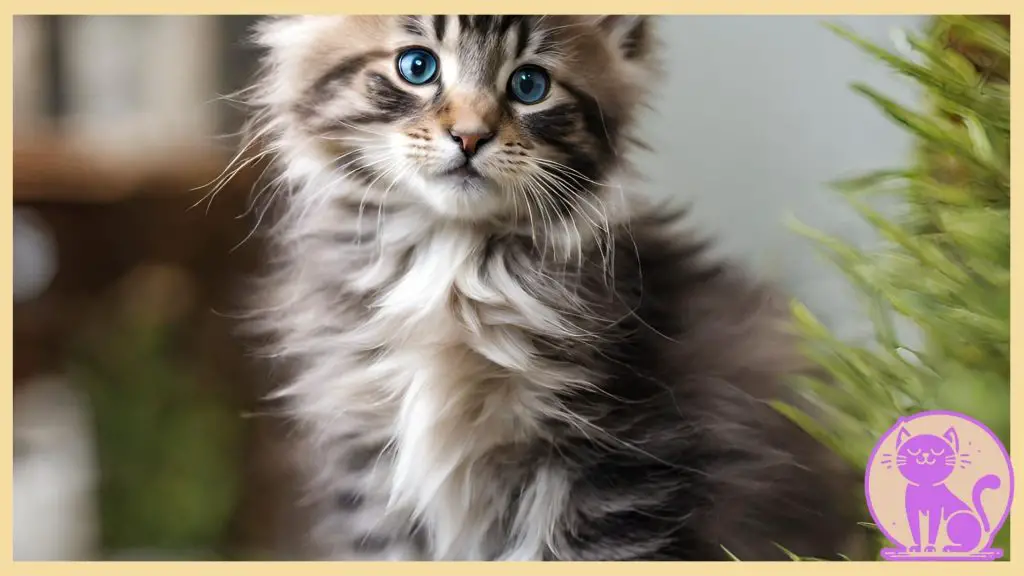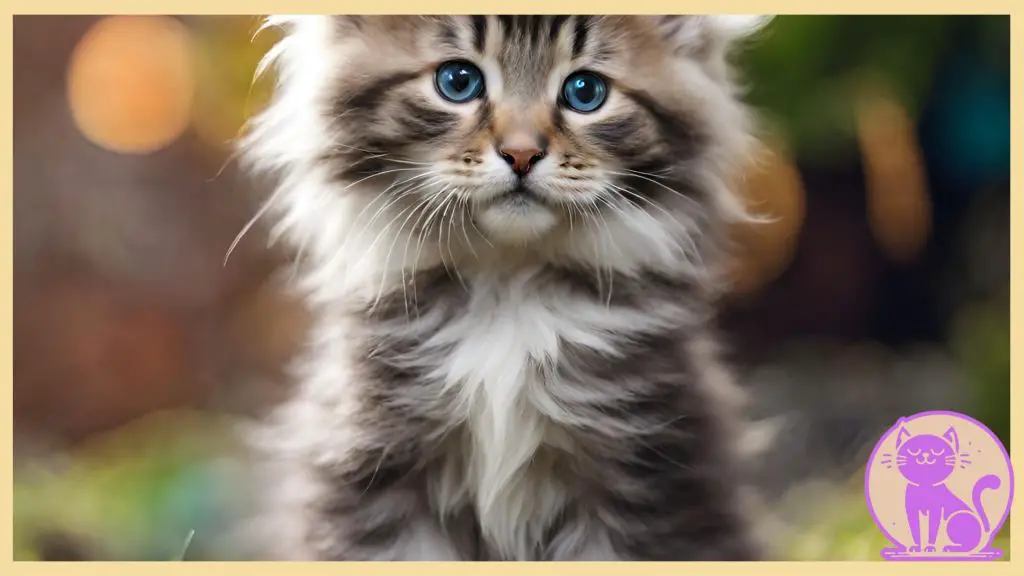Pet owners who are enchanted by the larger-than-life personality and impressive stature of Maine Coons often find themselves pondering about the Maine Coon life expectancy. A mix of fascination and a desire for companionship for as long as possible leads many to research diligently about the Maine Coon cat age, seeking insights into how their furry friends can enjoy a long, healthy life by their side. In this article, we’ll delve into the factors influencing the longevity of these majestic cats and offer guidance to prolong their cherished presence in our homes.
Understanding the Maine Coon Cat Breed

Delving into the remarkable world of the Maine Coon breed unveils a history as impressive as their formidable stature. Originally from the northeastern United States, the Maine Coon is one of the oldest and largest domesticated cat breeds, captivating cat enthusiasts with their size, personality, and stunning physical attributes.
This naturally occurring breed is well-adapted to colder climates, thanks to their water-resistant fur and bushy tails, which they can wrap around their bodies like a cozy blanket. Their tufted ears and ample paws serve as efficient tools against the snow, earning them their reputation as robust and resilient felines.
The Maine Coon’s popularity is not solely attributed to their physical prowess but also to their dog-like personalities. These gentle giants are known for their sociability, affectionate nature, and keen intelligence. A Maine Coon’s lifespan often reflects the care nurtured into these affectionate companions, wading through life’s adventures by your side.
To better grasp the Maine Coon breed lifespan and what Maine Coon cat years entail, consider their historical role as farm cats and ship’s companions, which has shaped their hearty constitution. In terms of longevity, these cats are the epitome of endurance and vitality within the felidae family.
- Characteristic long, shaggy fur suitable for harsh winters
- Prominent ruff around the neck resembling a lion’s mane
- Large, well-tufted paws that act as snowshoes
- Long, bushy tail for warmth and balance
- Sociable disposition, often described as ‘dog-like’
| Physical Trait | Function | Contribution to Lifespan |
|---|---|---|
| Water-Resistant Fur | Protection from wet conditions | Shields from cold, reduces risk of sickness |
| Tufted Ears | Insulation and protection against debris | Prevents ear infections and frostbite |
| Large Paws | Navigating snowy terrains | Enhances mobility, lessens joint stress |
| Robust Bone Structure | Support for a large body frame | Foundation for a healthy, active lifestyle |
Understanding the Maine Coon’s origins, characteristics, and congenial personality is essential when considering a lifelong companion. Whether they are sauntering majestically through your home or cuddling up for quality time, the Maine Coon’s presence is truly larger than life, mirroring their notable Maine Coon cat years as cherished members of the family.
Factors that Influence Maine Coon Lifespan
When it comes to understanding the longevity of a Maine Coon, several factors come into play. From genetic predispositions to the daily care they receive, each element has the potential to impact the Maine Coon lifespan range and Maine Coon lifespan average. It’s imperative for owners to be informed about these factors to provide the best possible life for their feline companions.
Genetics and Hereditary Health Issues
Genetics play a significant role in the health and longevity of Maine Coon cats. Inherited conditions such as hypertrophic cardiomyopathy (HCM) and hip dysplasia can affect Maine Coons and may influence their lifespan. Responsible breeding practices are key in minimizing the risk of these hereditary issues and can contribute to a longer, healthier life for these majestic cats.
Care and Living Conditions
The environment in which a Maine Coon is raised and lives also has a substantial impact on its well-being and longevity. Cats that live indoors tend to have a longer lifespan due to the protection from outdoor dangers such as traffic, predators, and disease. Furthermore, the level of care, including regular veterinary check-ups, vaccination, and parasite control, are crucial factors that contribute to a Maine Coon’s life expectancy.
Diet and Nutrition Essentials for Longevity
A balanced diet is crucial for maintaining a healthy Maine Coon throughout its life. Quality cat food that meets all nutritional needs is essential for preventing obesity and managing health conditions that could affect the Maine Coon lifespan average. Understanding the dietary needs of this breed can help ensure that your Maine Coon remains healthy and active for many years.
| Age Range | Dietary Focus | Benefits |
|---|---|---|
| Kitten (0-1 years) | High-Protein, High-Fat | Supports growth and development |
| Adult (1-10 years) | Well-Balanced, Controlled Calories | Maintains healthy weight and energy levels |
| Senior (10+ years) | Easy-to-Digest, Low-Calorie | Supports organ health and mobility |
Proper care, a safe environment, and a diet enriched with the right nutrients are keys to extending the Maine Coon lifespan range. By paying close attention to these vital factors, owners can enhance not only the quantity but also the quality of their Maine Coon’s life.
Typical Health Concerns for Maine Coons

When considering the Maine Coon cat age and life expectancy, it’s essential to acknowledge the common health concerns that can affect this breed’s longevity. Informed owners can take proactive steps to manage these issues, potentially extending their pets’ lives. Below, we delve into some of the health conditions to watch for in Maine Coons.
Hypertrophic Cardiomyopathy (HCM) is the most prevalent heart condition among Maine Coon cats. HCM causes thickening of the heart muscle, leading to decreased cardiac function. Regular veterinary check-ups including echocardiograms can help catch this condition early, allowing for better management.
Hip Dysplasia is another concern for these large cats. It causes malformation of the hip joint, leading to pain and mobility issues. Maintaining a healthy weight and appropriate exercise can aid in managing symptoms and slowing progression.
Additionally, Maine Coons are susceptible to Spinal Muscular Atrophy (SMA), a genetic disorder affecting muscle control. Fortunately, while SMA may cause muscle weakness, it’s not typically painful or life-threatening.
Lastly, issues such as polycystic kidney disease (PKD), a hereditary condition characterized by cyst formation in the kidneys, can also affect the life expectancy of Maine Coons. Proactive management through diet and regular veterinary care is critical.
| Health Concern | Description | Proactive Measures |
|---|---|---|
| Hypertrophic Cardiomyopathy (HCM) | Heart muscle thickening | Regular veterinary heart monitoring |
| Hip Dysplasia | Hip joint malformation | Weight management, pain management, proper exercise |
| Spinal Muscular Atrophy (SMA) | Genetic muscle control disorder | Maintaining a nurturing environment to accommodate limited mobility |
| Polycystic Kidney Disease (PKD) | Cystic genetic kidney condition | Dietary adjustments, regular veterinary kidney checks |
Understanding these health issues can empower Maine Coon owners to provide the best care for their cats, positively influencing both their quality of life and their Maine Coon life expectancy. By staying vigilant and working closely with your veterinarian, you can offer your cat the chance for a long, happy life.
How Long Do Maine Coons Live

When considering the Maine Coon breed lifespan, it’s important to look at both the average longevity and instances where these cats have defied expectations. Maine Coons are known for their robust health and larger size, and these factors play into their lifespans, which may differ from other cat breeds. Understanding the average and exceptional age milestones will help Maine Coon owners better prepare for the journey ahead with their feline companions.
Comparing Maine Coon Lifespan to Other Breeds
Maine Coons generally have a reputation for being hardy due to their origins as New England farm cats. When compared to other popular breeds, their lifespans are quite competitive, often ranging close to or beyond the larger spectrum of feline longevity. While breed is a significant factor, individual care, genetics, and health interventions can affect lifespan, making some Maine Coons live longer than others.
Maine Coon Lifespan Average
The average lifespan of a Maine Coon falls between 12 and 15 Maine Coon cat years, which is comparable to many other purebred cats. However, with attentive care, some reach into their late teens, which is a testament to the importance of proper nutrition and preventative health measures.
Record Ages for Maine Coon Cats
While the average is a helpful guide, there are always exceptions. Some Maine Coons have been reported to live into their 20s, a major feat for such a large cat breed. These cases often share commonalities such as exceptional care, genetic fortitude, and a nurturing living environment. Their stories serve as motivation for owners aiming to maximize not just the years, but the quality of life for their Maine Coon companions.
| Maine Coon | Other Large Breeds | Domestic Mixed Breed |
|---|---|---|
| 12-15 years | 10-12 years | 12-14 years |
| Notables: 20+ years | Select cases: 15+ years | Upwards of 20 years |
While the breeds compared display a range of typical lifespans, the overarching theme is that love, regular veterinary care, and an understanding of breed-specific needs are the catalysts for longevity. For Maine Coon enthusiasts, these cats aren’t just pets; they are treasured family members whose time with us is cherished and maximized through our efforts.
Importance of Regular Veterinary Care for Maine Coons

The Maine Coon lifespan range can be significantly influenced by periodic and thorough veterinary care. Routine check-ups can lead to the early detection of conditions that commonly affect the Maine Coon cat breed, such as hypertrophic cardiomyopathy and hip dysplasia. Early diagnosis and treatment can prevent complications that may otherwise shorten a Maine Coon cat’s age. Moreover, standard vaccinations and parasite control are paramount in safeguarding your cat’s health and prolonging its lifespan.
Preventive care, including regular dental check-ups, is also essential. Dental disease can lead to systemic issues that affect a Maine Coon cat’s internal organs, negatively impacting their longevity. Therefore, maintaining oral hygiene is an integral part of ensuring the well-being of these majestic felines.
| Age Range | Recommended Veterinary Checks |
|---|---|
| Kitten (0-1 Year) | Vaccine series, spay/neuter, initial bloodwork |
| Young Adult (1-6 Years) | Annual wellness exams, vaccine boosters, dental check-ups |
| Mature Adult (7-10 Years) | Biannual wellness exams, bloodwork, continued dental care |
| Senior (10+ Years) | Biannual wellness exams with a focus on geriatric assessments, bloodwork, blood pressure monitoring |
Following this veterinary care schedule assists in maximizing the Maine Coon lifespan range and keeping your pet healthy throughout its various life stages. A collaborative relationship with your veterinarian ensures that the specific needs of your Maine Coon are met, their health is monitored effectively, and any age-related conditions are managed promptly.
How to Support a Healthy Lifestyle for Your Maine Coon
As the proud owner of a Maine Coon, you play an essential role in extending your feline friend’s Maine Coon lifespan average and enhancing their Maine Coon life expectancy. Encouraging a healthy lifestyle is pivotal and involves more than just routine care. In this guide, we’ll explore actionable steps to keep your Maine Coon both physically and mentally thriving.
Exercise: Keeping Your Maine Coon Active
Maintaining an active lifestyle is crucial for your Maine Coon’s health. Regular exercise helps prevent obesity, a significant factor affecting their lifespan. Engage your cat with interactive toys or set up a cat tree for climbing. Regular play sessions, combined with outdoor walk training if possible, can keep your Maine Coon agile and strong. Below are activities to incorporate into your cat’s routine:
- Laser pointer games to stimulate their prey drive
- Feather wands that encourage jumping and swatting
- Treat puzzles that make them work for their food
Nutritional Supplements and Vitamins
A diet enriched with key nutrients can bolster your Maine Coon’s health and potentially their lifespan. Consult your veterinarian about integrating supplements and vitamins into their diet, especially those that support joint health and heart function. Remember, supplements should complement a well-balanced diet, not replace it. Consider the following:
- Fish oil supplements rich in omega-3 fatty acids for coat health
- Glucosamine and chondroitin for joint support
- Taurine, an amino acid crucial for heart health
Mental Stimulation for Maine Coons
Equally important to physical health is your Maine Coon’s mental well-being. These intelligent and curious cats require mental engagement to remain content and healthy. Furnish their environment with stimulating toys, offer opportunities for exploration, and foster bonding through interactive play. Here are a few suggestions to mentally engage your Maine Coon:
- Hide-and-seek games using treats to encourage hunting behavior
- Training sessions that teach tricks or commands
- Regular social interaction with humans or fellow pets
By incorporating these practices into your Maine Coon’s life, you’re not only investing in their present happiness but also actively contributing to a longer, more fulfilled life. Remember, these majestic cats depend on you, so take every step to uphold their well-deserved title of gentle giants of the cat world.
Maine Coon Life Expectancy Compared to General Cat Population

The Maine Coon breed is often celebrated for its majestic appearance and friendly temperament, but potential owners and cat enthusiasts frequently inquire about the Maine Coon breed lifespan. When we consider the Maine Coon cat years in comparison to the average domesticated cat, there is much to uncover about this breed’s longevity.
Maine Coons have a reputation for being hardy, with a lifespan that often ranges between 12 to 15 years, and sometimes even longer with proper care. The general cat population, on the other hand, tends to have a lifespan average that is roughly around 12 to 14 years. While this might suggest that Maine Coon’s life expectancy aligns with the general feline populace, it’s important to note the contributing factors that can influence these figures.
- Genetic Predispositions: Maine Coons are prone to certain hereditary conditions that can impact their longevity, making thoughtful breeding and health screening important.
- Care Standards: A Maine Coon’s environment and the standard of care it receives are significant contributors to its lifespan.
- Dietary Habits: The breed’s nutritional intake is a contributing factor where quality diet tailored can promote a longer, healthier life.
Understanding the nuances that affect the lifespan of Maine Coons as opposed to the general cat population enables us to appreciate the responsibilities that come with owning such a distinctive breed. Each Maine Coon cat year can be full of vibrancy if given the right care and attention, which not only meets but sometimes exceeds the average expectancy of the typical house cat.
Common Misconceptions About Maine Coon Lifespan
As majestic as they are, Maine Coons are often surrounded by a halo of mystery, particularly when it comes to their lifespan. Various misconceptions have taken root, some of which suggest that the larger size of Maine Coons could lead to a shorter lifespan, while others perpetuate breeding myths that also claim to influence longevity. In this concluding section, we aim to shed light on the veracity of these claims and provide a more accurate understanding of the Maine Coon lifespan range and average.
Busting Myths About Maine Coon Size and Longevity
It’s commonly mistaken that the grandeur size of Maine Coons translates to shorter lifespans, similar to the pattern seen in some giant dog breeds. However, feline genetics work differently. Maine Coons, despite their impressive stature, boast a lifespan that falls well within a healthy range when compared to other domesticated cats. Studies and domestic observations align in stating that the Maine Coon lifespan average does not differ significantly because of their size, but rather depends heavily on hereditary factors, health, and quality of care.
Deciphering the Truth Behind Breeding Myths
Breeding practices have also been at the center of lifespan discussions, with some myths inaccurately suggesting that purebred Maine Coons have shorter lives than mixed breeds. The truth is, responsible breeding can ensure the longevity of Maine Coons by emphasizing health screenings and genetic testing to avoid hereditary diseases that might affect their lifespan. While mixed breeds may display genetic diversity that can be beneficial, this does not inherently correlate with a longer life. As with all breeds, maintaining a healthy lifestyle and regular veterinary care are key components that support a Maine Coon’s lifespan range.
FAQ
Q: What is the typical lifespan of a Maine Coon cat?
A: Maine Coon cats typically live between 12 to 15 years, though with proper care and attention, some can live well into their teens and occasionally even surpass 20 years.
Q: Are there unique characteristics of Maine Coon cats that affect their lifespan?
A: Maine Coons are known for their large size, luxurious fur, and friendly demeanor. Their genetic makeup can predispose them to certain hereditary conditions, which can impact their lifespan, but with responsible breeding and care, many can enjoy a full and healthy life.
Q: How do genetics influence the lifespan of Maine Coon cats?
A: Genetics play a significant role in the health and longevity of Maine Coons, potentially passing on hereditary conditions like hypertrophic cardiomyopathy (HCM) that can affect their lifespan. Genetic diversity and responsible breeding practices can help mitigate these risks.
Q: What are the primary health concerns that could affect a Maine Coon’s longevity?
A: Maine Coons can be susceptible to health issues like hypertrophic cardiomyopathy (HCM), hip dysplasia, and spinal muscular atrophy (SMA). Proactive management of these conditions through regular veterinary care can help extend their lifespan.
Q: How does the lifespan of Maine Coon cats compare to other breeds?
A: Maine Coon cats typically have a similar lifespan to other large breeds, often outliving some of the larger breeds while possibly falling short of the lifespans of smaller, domestic felines.
Q: What is the importance of regular veterinary check-ups for Maine Coon cats?
A: Regular veterinary check-ups are crucial as they help catch and treat potential health issues early on, manage hereditary conditions effectively, and ensure that Maine Coons maintain an optimal health status throughout their lives.
Q: How can I support a healthy lifestyle for my Maine Coon?
A: You can support a healthy lifestyle for your Maine Coon by ensuring they get regular exercise, providing a balanced diet with appropriate nutritional supplements, and engaging them in mental stimulation activities to keep their mind sharp.
Q: Do Maine Coon cats have a different life expectancy compared to the general cat population?
A: Maine Coon cats generally have a lifespan that’s on par with the average domestic cat, though factors like size, hereditary health issues, and the level of care they receive can influence their life expectancy.
Q: What are some common misconceptions about the Maine Coon lifespan?
A: Common misconceptions include the belief that their larger size means a shorter lifespan, or that purebred Maine Coons have more health problems compared to mixed breeds. However, with adequate care and a healthy environment, Maine Coons can live long, fulfilling lives.








